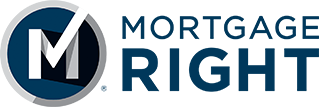
One of the most important things to do when getting a mortgage is to ensure the mortgage you choose fits all your home-buying requirements. It’s possible to get the right interest rate, monthly payment amount, and more! You simply need to make the most of available mortgage options, and put your best foot forward where your finances are concerned. Here’s how you can get the best mortgage for your needs.
Improve your credit score.
No matter which loan you choose, better mortgage rates tend to come to borrowers with higher credit scores. To lenders, your credit score is a risk assessment tool. Typically, the lower your credit score, the riskier it is to lend to you. Borrowers with a low credit score are more likely to default on a loan or fail to meet contractual obligations. This leads lenders to charge higher interest rates to applicants with lower credit scores.
If your credit score is preventing you from buying the perfect home, these tips will help you improve it:
- Be consistent with payments – On-time debt payment is the number one way to raise your credit score. If you have trouble making payments on time, consider using automatic payment systems.
- Consider paying your debts off early – Paying down certain debt before it’s due or making more payments a month than required can also benefit your credit score. Going this route can also decrease your debt-to-income ratio.
Need more help increasing your credit score? Download our FREE Credit Repair Guide.
Choose your loan term carefully.
Short-term loans
Short-term mortgage loans are those that are shorter than the typical 30-year term. Risk is less of an issue with short-term loans, so they typically come with lower mortgage rates. Short-term loans also tend to save borrowers more money over time. However, because you’ll be paying the principal for a shorter amount of time, your monthly payments will be higher.
This loan option is less suitable for borrowers who fall into a lower income bracket, don’t have enough savings to offset higher monthly payments, or are less financially stable. If you’re adamant about a lower mortgage interest rate and can handle higher mortgage payments, a short-term loan might be your best bet.
Long-term loans
Long-term loans are the most common and are typically a 30-year term. These loans allow you to spread your payments over a longer period of time, which will lower monthly mortgage payments and leave you with more disposable income each month than a short-term loan would.
Make a larger down payment.
The more money you put down on your home, the less you will owe on the mortgage loan. If you make a larger down payment, you can build more equity in your home from the start. Because interest is calculated from the principal, larger down payments also open the door for lower interest costs over the life of the loan.
A borrower’s inability to put down a significant amount on a home could make lenders view their loan as riskier than those who put more money down. In this case, less money down can result in a higher interest rate.
Keep this in mind: A sizable down payment has its perks, but some loans don’t require a large (or any) down payment at all! FHA and VA loans are excellent mortgage options for those that qualify and want to put less money down.
Remember rate locks.
Rate locks are a great way to potentially avoid rate changes before you close on your home loan. Our Lock & Shop program preapproves a borrower’s budget ahead of time and applies a 60-day interest-rate lock before they start shopping for a home. Lock & Shop is available for all conforming Conventional, VA, FHA, and USDA loans.
Keep this in mind: Like most rate-lock options, borrowers do have to pay an upfront fee to access our program. To learn more, reach out to your closest branch here.
Want to change your mortgage? Refinance!
If you’ve already purchased your home but you’re unsatisfied with your current loan, refinancing is an option! Renegotiating the terms of your mortgage can save you money over the new course of the loan. There are many available refinancing options, each with its own advantages and drawbacks.
Here are a few ways a refinance can benefit you:
- If you have an adjustable-rate mortgage and interest rates are on an upward trend, you can benefit by refinancing to a fixed-rate mortgage.
- Sometimes expenses pop up, and you need cash to pay for them. If you have enough equity built up in your home, you can use a cash-out refinance to get a lump sum and pay for anything that needs funding.
- Many borrowers improve their financial situation over time, so it is possible for you to renegotiate a fixed-rate mortgage to a lower rate if you have a better credit score or if rates have decreased since you initially closed on your loan.
Make sure your mortgage is RIGHT for you!
Landing the right mortgage can make or break your home-buying experience, so we want to help you make the best mortgage decision you can! Reach out today to get started on your home-buying journey.






